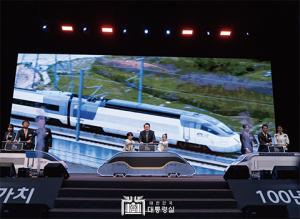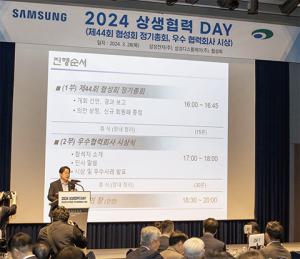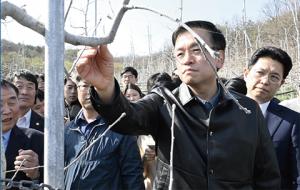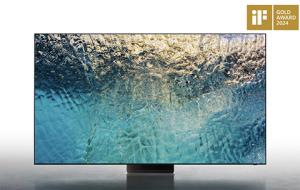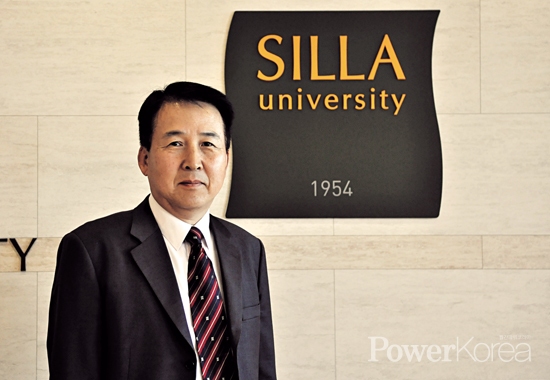 |
||
| ▲ 신라대학교 국제관광학부 조윤식 교수 | ||
“더 나은 대안을 위한 창의적인 생각이 문화와 역사를 바꿀 것”
신라대학교 국제관광학부 조윤식 교수
우리나라의 뜨거운 교육열은 과거 전 세계에서 가장 눈부신 성장을 이뤄낼 수 있었던 동력이었다. 하지만 지금에 와서는 ‘시험’이라는 굴레에 갇혀 낡은 교육만을 되풀이하는 까닭에 대한민국은 시대의 변화를 따라잡지 못하고 있는 것이 사실이다. 유형의 자산보다는 무형의 자산이 가진 가치가 더 중요해지고 있는 시대, 신라대학교의 조윤식 교수는 대학교육의 최전선에 서서 한국 교육의 변화와 혁신의 필요성을 강조하고 있는 인물이다.
스스로 생각하도록 돕는 토론식 교육이 필요해
우리나라의 교육은 대체로 지식 습득을 위한 수업이 주를 이루고 있다. 몇 해 전부터 주입식 교육의 폐해가 꾸준히 지적받아온 결과 창의적인 사고력과 상상력을 배양하기 위한 토론식 교육이 증가하고 있다고는 하지만, 여전히 일선 현장에서 펼쳐지는 교육의 60%는 단기적인 효과를 위한 암기교육이다. 이 같은 주입식 교육은 다양한 의견을 표출하고 발산하는 능력을 권장하기보다는 학생들의 사고를 획일화하고 단순하게 만든다는 데 문제가 있다. 그리고 이러한 교육이 이뤄지는 현장에는 창의적인 생각이나 질문이 존재하지 않는다. 신라대학교 국제관광학부의 조윤식 교수는 “교육이란 기존의 지식을 학생들에게 전달하는 것이 아닌, 학생들이 스스로 생각하는 사람이 되도록 돕는 일이라 생각합니다. 여기서의 ‘생각’이란 무엇을 읽고, 쓰고, 말하는 등의 기초적인 것이 아니라, 더욱 나은 결과를 도출하기 위해 창의적인 의견을 제시하는 것을 말합니다”라고 말했다. 그는 ‘토론식 교육’이야 말로 창의적인 생각을 가능케 하는 효과적인 교육방법이며, 학생들을 평가하는 방식 또한 이에 적합한 형태로 변화되어야 한다고 역설했다. 이러한 생각은 실제 그의 교육방침에 그대로 적용되고 있다. 평소 학생들에게 교재나 교수의 말을 전적으로 맹신하기 보다는 언제나 ‘자신만의 생각’을 가지라고 강조한다는 그는 시험 대신 ‘Take Home Project’로 학생들을 평가하고 있다. 리포트의 경우에도 항상 팀 리포트로 부과하며, 팀별 회의를 통해 단순한 ‘정답’을 찾기 보다는 ‘보다 나은 대안’을 찾을 수 있도록 가르치고 있다. 조 교수는 “창의적인 생각의 결과는 개인적 차원에 그치는 것이 아니라 집단, 조직, 사회, 국가로 올라갈수록 더 큰 의미를 가지게 됩니다. 창의적인 생각은 그 사람의 사상을 형성하며, 그 사상은 시대의 문화를 창출하고, 그 문화는 역사를 바꾸게 됩니다”라고 강조했다.
학생들의 창의성을 발휘하게 하려면 학생들의 호기심과 열정을 자극하고 불러일으켜야 하는데, 주입식교육은 오히려 학생들의 호기심과 열정을 철저하게 말살시킨다. 토론식 수업은 학생들의 호기심과 열정을 불러일으킬 수 있다.
한국 사람은 지식을 머릿속에 기억을 하고, 일본사람은 노트에 기록하여 정리한다고 한다. 일본도 한국과 마찬가지로 토론식 수업이 활성화 되어 있지는 않지만, 대신 일본의 초등학교 교사들은 학생들에게 노트정리를 강조하고 수시로 제출받아 평가한다고 한다. 학생들의 노트정리는 호기심과 열정 없이는 절대 불가능하다. 초등학생때부터 노트정리에 훈련된 일본학생들은 중학교, 고등학교는 물론 대학생이 되어서도 노트정리 하나만큼은 세계 최고가 되어있다. 그 결과 일본은 노벨과학상 수상자가 25명이나 배출하게 된 것이다. 그런데 한국은 과학관련 수상자가 단 한명도 없는 것이다(평화상 수상자 단 한명). 더 큰 문제는 현재까지만 없는 것이 아니라, 앞으로도 상당기간 동안 과학관련 노벨수상자는 배출되지 못할 것이다. 그 이유는 주입식교육으로 호기심과 열정이 말살된 교육토양에서는 절대 노벨상 수상자가 나올 수 없기 때문이다. 한국은 어서 빨리 주입식 교육을 탈피하고, 먼저 일본식 노트정리방식도 도입하고, 동시에 토론식 교육방식도 도입해야 한다. 그리고 최소 30년은 흘러야 노벨과학상 수상자가 배출될 것이다.
“학술연구와 인적교류가 활성화되는 학회를 만들겠습니다”
교육의 혁신을 통해 조직과 사회, 나아가서는 국가의 커다란 변화를 이끌어내고자 노력하고 있는 조윤식 교수. 그는 1993년 교수로 부임한 뒤 교무부처장, 학생처장, 교수평의원회 회장, 친목회장 등을 역임한 것은 물론, 교내의 각종 위원회 활동을 통해 대학개혁보고서, 연구보고서 작성 등 대학발전에 다각도로 기여하는 한편, 부산시정 자문위원, 각종 기관들의 심사위원, 외부강연, 외부프로젝트 등에도 왕성한 활동을 보여왔다. 또한 60여 편의 논문과 10여 권의 저서를 발간하기도 한 조 교수는 지난 5월, 한국마케팅관리학회 차기 회장으로 선출됐다.
한국마케팅관리학회는 전국 각 대학의 마케팅전공교수 및 관련 분야 전문가 700여 명의 회원이 참여하는 학회로 그동안 저널 ‘마케팅관리연구’ 발간, 춘계 및 추계 학술대회, 마케팅 대상 시상, 해외석학 초청강연, 마케팅연구회 운영 등의 활동을 이어왔다. 오는 2017년 5월부터 1년간 회장으로서 학회를 이끌게 된 그는 “학문을 연구하는 이로서 전국 규모 학회의 회장으로 선출된 것에 대해 매우 영광스럽게 생각합니다. 역대 회장님들과 선배님들께서 발전시킨 학회가 계속적으로 성장할 수 있도록 노력하겠습니다”라고 다짐했다. 또한 이에 덧붙여 “예전에는 학문발표와 인적교류의 장으로서의 성격이 강했으나, 최근 각 대학별 교수업적평가제도의 도입으로 인해 일부의 경우 오직 논문발표와 저널지 게재에만 힘을 쏟고 있는 것 같아 안타까움이 큽니다. 이에 박사과정 학생들의 학회 발표활동을 적극 활성화 시키는 한편, 타 대학 교수들과의 교류도 다질 수 있는 학회를 만들어가고자 합니다”라고 밝혔다. 이 세상을 새로운 방향으로 선도할 인재와 산업을 만들어내고 싶다는 조윤식 교수. 5년여 남은 재직기간동안 한국마케팅관리학회의 회장으로서, 미래를 이끌어 갈 젊은 인재를 양성하는 교수로서의 소임에 충실하겠다는 그의 열정에 응원의 박수를 보낸다.
“Creative thinking for a better alternative will change culture and history”
Prof. Cho Yoon-shik, Silla university, department of international tourism
Once it was education fever that impelled our country toward the most brilliant growth in the world. But now things are different. These days it is true in Korea that repeating the old education stuck in the ruts of ‘tests’ alone is failing to catch up with the change of the times. In our times when intangible assets are becoming more important in value than tangible assets, Prof. Cho Yoon-shik at Silla University is emphasizing the necessity for the change and innovation of Korean education on the frontline of university education.
Needs discussion class to help one think on his own
Generally, education in our country mainly consists of the class for acquiring knowledge. Though constant criticism about the harm of learning by rote since years ago has been increasing discussion classes for culturing creative thinking and imagination, 60 percent of classes carrying on the spot are still focused on memorizing for short-term effects. Such teaching by rote has the problem of making the students’ thoughts stereotyped and simplified rather than encouraging their ability to express and diffuse diverse views. And on the scene of giving such class, there cannot be creative ideas or questions. Prof. Cho Yoon-shik of Silla University, international tourism, said, “I think education is not to deliver the existing knowledge to students but to help them become thinking people themselves. Here, ‘thinking’ means not the basic skill such as reading, writing or speaking something but presenting creative views in order to draw a better result.” He emphasized that ‘discussion class’ is the very effective method of education that allows creative thinking and that the system of evaluating students should be also changed into the form suited for this. Such an idea is actually being applied to his policies of education precisely. At ordinary times, he emphasizes that students should not wholly believe the textbook or professor but should have ‘their exclusively own ideas.’ He is evaluating on students with ‘take-home project’ instead of tests. For reports, he always administers in the form of team reports and teaches them to find ‘a better alternative’ through a team meeting rather than a simple ‘right answer.’ Prof. Cho stressed, “The result of creative thoughts is not restricted to an individual level but has the larger meaning as it rises up to a group, organization, society and the state. Creative thoughts shape the person’s ideas, those ideas create the culture of the times and such culture is due to change history.”
“To make a learned society in active academic research and personal exchange”
Prof. Cho Yoon-shik is making efforts to draw a big change in organization, society and then the state through innovating education, After taking a new post as professor in 1993, he served successively as chief of administrative office, student office, committee of professors and get-together while contributing to university development by preparing university reform reports and research reports through the activity of each committee on campus. He has also acted vigorously as advisor to Busan municipal administration and judge in many institutions and with outside lectures and projects. Besides, Prof. Cho published 60 papers and a dozen books and was selected in last May as next-period president of Korea Marketing Management Society.
Korea Marketing Management Society consists of around 700 members from marketing specialty professors of universities around the country and specialists in related fields. It has so far engaged in publishing the journal ‘Marketing management research,’ spring and autumn conferences, awarding the grand prix for marketing, lectures by inviting foreign great scholars and operating the marketing society for research. He was selected as president to lead the society for one year from May 2017 and promised, “For a scholar, I am very much honored to be selected as the president of the nationwide society. I will do my best to help the society continue to advance following all presidents and seniors in history.” He also clarified, “In the past our society was strong in the nature of presenting scholarship and personal exchange, but I am very sorry that recently some members seem to be only concerned with publishing papers and contributing articles to journals due to the introduction of professor performance evaluation system for each university.
So I will promote the activity of students on the doctor’s course to publish for the society while allowing exchange with professors from other universities.” Prof. Cho Yoon-shik says he wants to make talents and industries that are to lead this world in a new direction. For the five remaining years in service, he will certainly be faithful to his mentioned duty as president of Korea Marketing Management Society and as professor who must rear young talents as a future leader.
임승민 기자 press0105@naver.com

